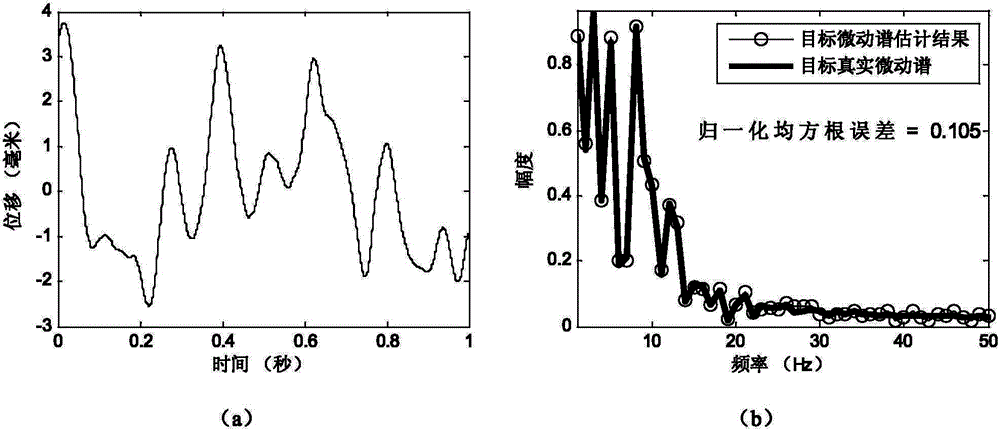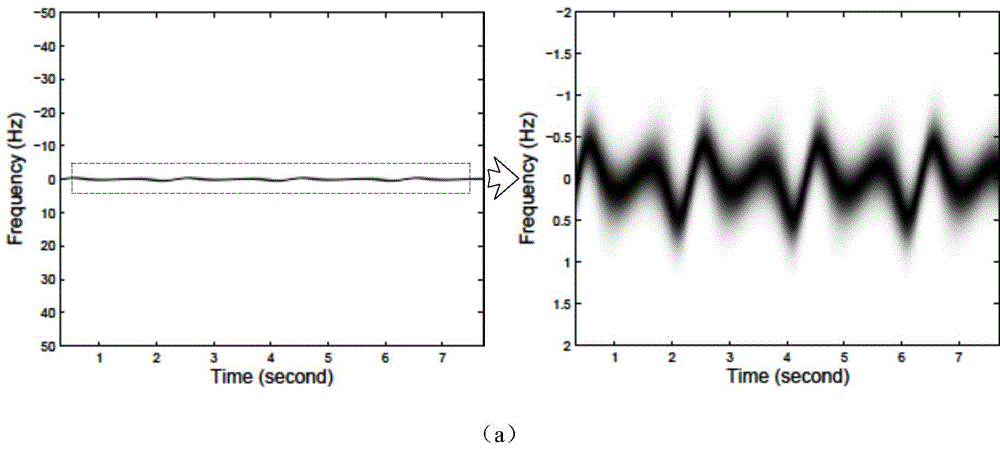Estimation method of micro-motion characteristics of low-frequency radar target
A radar target, low-frequency technology, applied in the radar field, can solve problems such as large computational load, inability to target micro-Doppler signal processing, and implementation difficulties
- Summary
- Abstract
- Description
- Claims
- Application Information
AI Technical Summary
Problems solved by technology
Method used
Image
Examples
Embodiment Construction
[0034] The present invention will be further described below in conjunction with the accompanying drawings.
[0035] figure 1 It is a flowchart of a method for estimating micro-motion characteristics of a low-frequency radar target for common narrowband pulse Doppler radars in the present invention. The input of the method is the target narrow-band echo x(t) obtained by the low-frequency radar, the signal x(k) is obtained after performing N-point discrete sampling on x(t), and then undergoes complex logarithmic operation, and then through phase defuzzification and spectrum estimation to obtain Y(m), and finally calculate the target micro-motion spectrum Z(m). The output of the method is the micro-motion characteristics of the target. Wherein, the number of discrete sampling points and sampling rate are determined according to specific problems, and the higher the number of points and sampling rate is, the more accurate the target micro-motion spectrum obtained by the present ...
PUM
 Login to View More
Login to View More Abstract
Description
Claims
Application Information
 Login to View More
Login to View More - R&D
- Intellectual Property
- Life Sciences
- Materials
- Tech Scout
- Unparalleled Data Quality
- Higher Quality Content
- 60% Fewer Hallucinations
Browse by: Latest US Patents, China's latest patents, Technical Efficacy Thesaurus, Application Domain, Technology Topic, Popular Technical Reports.
© 2025 PatSnap. All rights reserved.Legal|Privacy policy|Modern Slavery Act Transparency Statement|Sitemap|About US| Contact US: help@patsnap.com



